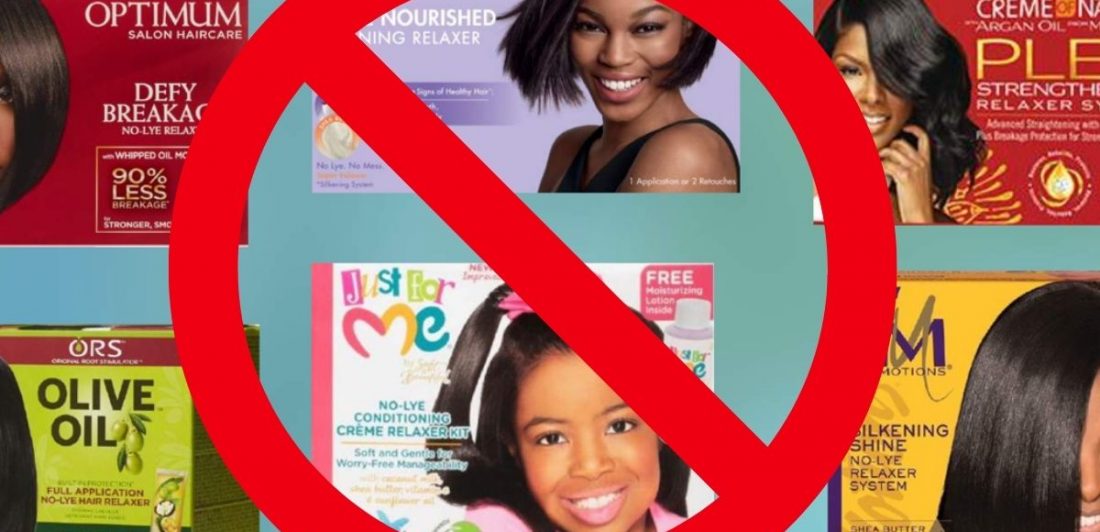The U.S. Food and Drug Administration (FDA) is set to propose a ban on specific hair-straightening products, including chemical relaxers and pressing products. The proposal for a chemical relaxer ban is a significant move toward safeguarding public health. The decision responds to growing concerns about the use of these products. The concerns are largely among Black and Latina women—two groups often targeted with dangerous products.
The proposed rule, detailed in the Unified Agenda, will target hair-straightening products containing formaldehyde and other formaldehyde-releasing chemicals like methylene or glycol, which have long been suspected of posing health risks, including an increased risk of hormone-related cancers such as ovarian, breast, and uterine cancer.
Racial Disparities in Product Composition Raise Concerns
Concerns about racial disparities in product composition arise as research indicates that about 50% of products marketed to Black women contain these harmful chemicals, compared to only 7% in products aimed at White women, as the Harvard T.H. Chan School of Public Health reports.
The FDA's proposed language will emphasize that hair-straightening chemical products have short-term adverse health effects. For example, when heating tools are part of the smoothing or straightening process, breathing problems may occur.
Congressional Support for FDA Chemical Relaxer Ban
Earlier this year, Representatives Ayanna Pressley and Shontel Brown penned a letter to FDA Commissioner Dr. Robert Califf. Their letter urges for a comprehensive investigation into the presence of carcinogens in hair-straightening products, gaining momentum for the ban proposal. Both lawmakers have praised the FDA's actions and called for swift implementation of the ban.
Rep. Pressley stated, “The FDA's proposal to ban these harmful chemicals in hair straighteners and relaxers is a win for public health – especially the health of Black women who are disproportionately put at risk by these products as a result of systemic racism and anti-Black hair sentiment.”
A study published in the Journal of the National Cancer Institute found a connection between the use of hair-straightening products and an elevated risk of uterine cancer, emphasizing the urgency of the ban. Women who frequently used these products faced a 4% risk of developing uterine cancer by age 70, compared to 1.6% for those who did not use them in the previous year.
L'Oreal's Response and Commitment to Safety
In response, L'Oreal released a statement asserting the safety of their products and dismissing the legal merit of the lawsuits. They highlighted their commitment to rigorous safety standards and compliance with regulations in all markets.
Final Thoughts: A Step Toward Consumer Safety
The FDA's proposal to ban these products marks a significant stride in safeguarding the safety of consumers. This is especially true for women who suffer a disproportionate burden of the health risks tied to these products. The FDA will review public comments and decide on the ban, potentially enhancing the protection of the health and well-being of users of these hair-straightening products. The Carlson Law Firm will be keeping an eye on the development of this policy. Save our site for the latest updates on chemical hair relaxer lawsuits.
Considering Legal Action? Seek Assistance from The Carlson Law Firm
If hair-straightening products have negatively affected you or a loved one, the right legal help is crucial. The Carlson Law Firm commits to assisting individuals who have suffered harm due to harmful products like chemical relaxers. Our experienced attorneys have decades of experience in product liability and personal injury cases. We can offer you the guidance and support required during this challenging time. We understand the unique challenges faced by those affected. Our team remains dedicated to advocating for your rights and pursuing the compensation you deserve. Contact The Carlson Law Firm today to schedule a consultation and explore your legal options. Your health and well-being are our top priorities, and we are here to stand with you in your pursuit of justice.




